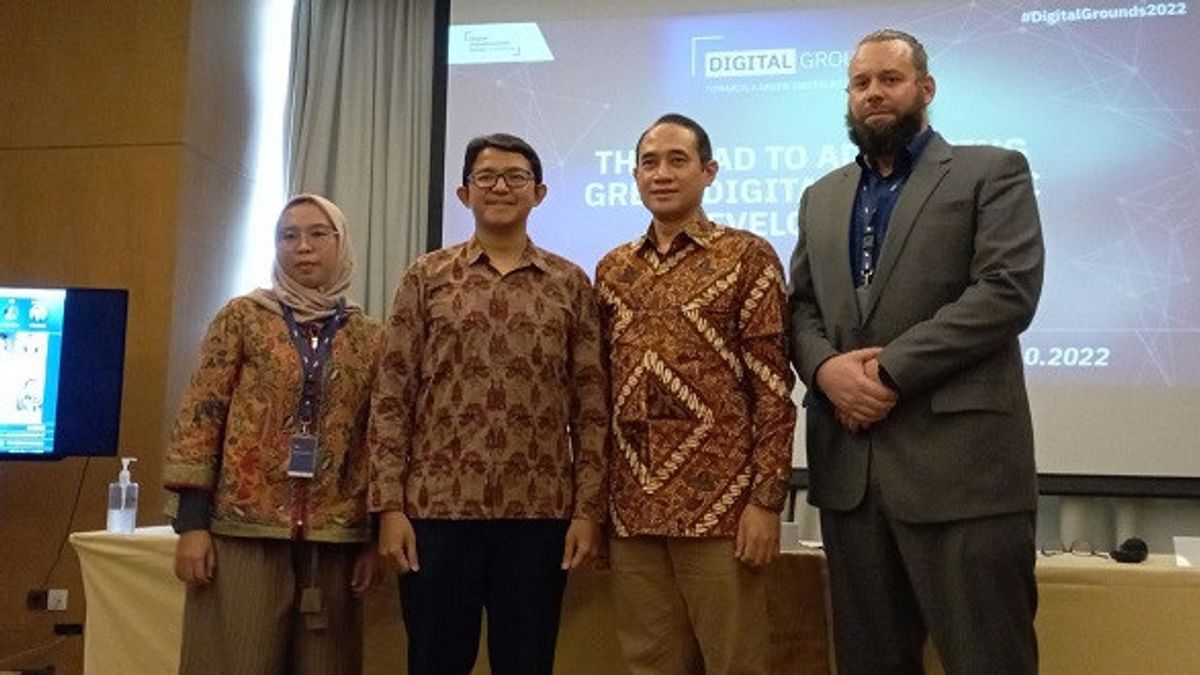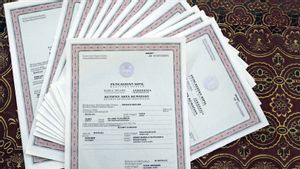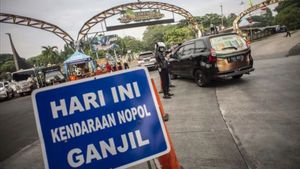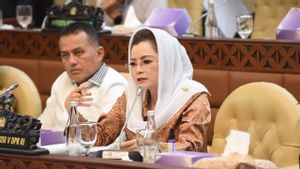JAKARTA - The Ministry of National Development Planning/National Development Planning Agency (Bappenas) together with Deutsche Geselschaft fur Internationale Zusammenarbeit (GIZ) support the acceleration of digital transformation for MSMEs and startups in Indonesia, particularly the development and adoption of technological innovation for a green economy.
"Digital transformation and a green economy are two of the six main strategies that Bappenas developed in the middle of this year to achieve Indonesia's vision 2045: Sovereign, Advanced, Fair, and Prosperous," said Rachmat Mardiana, Director of Electricity, Telecommunications and Information, Bappenas at the event "Digital Grounds: Forwards A Green Digital Economy" in Jakarta, Thursday, October 20.
Activities from the collaboration between Bappenas and GIZ Indonesia in the Digital Transformation Center and Make-IT Indonesia grant activity, which aims to support digital transformation in Indonesia through strengthening digital technology utilization activities and supporting factors (enabler) digital.
Rachmat also said that digital transformation is included in the Priority Program in the 2020-2024 National Medium-Term Development Plan (RPJMN), especially the National Priority 5 "Infrastructure to Support Economics and Basic Services".
"Through multi-stakeholder collaborations, such as bilateral partnerships between Indonesia and Germany, we can implement Sustainable and low-carbon Development Goals to achieve the Net-Zero Emissions target by 2060," he said.
Atiek Fadhilah, as Project Manager, Make-IT Indonesia, said: "As global partners, Indonesia and Germany are determined to work together to build strategic initiatives in accelerating sustainable digital transformation, environmentally friendly, and resilient economic development."
Make-IT aims to provide strategic support for social-oriented technology start-ups and sustainable agendas, especially in overcoming development challenges in the clean energy sector, environmental protection, natural resource management, and the circular economy.
Daniel airing, Lead Advisor for Indonesia's Digital Transformation Center (DTC), also commented that digital transformation is the root for MSMEs to develop their business and increase competitiveness, which in turn can contribute to driving the growth of the digital economy.
DTC is a global technology hub initiative that supports the development of a digital ecosystem in partner countries, which aims to narrow the digital divide, reduce disparities, and provide equal opportunities for all groups of people to benefit from the prospect of digitalization.
"Digital transformation brings new possibilities in developing promoting and adopting green technology innovations. The use of smart clean digital technology can serve as the main driver for climate protection, environmental sustainability, and achieving the United Nations Sustainable Development Goals (UN SDGs)," added Atiek.
According to the Green Economic Index/Green Economy Index (GEI) launched in August 2022, the green economy could generate an additional 1.8 million workers in the green sector by 2030, spread across the energy sector, electronic vehicles, land restoration, and waste management.
The English, Chinese, Japanese, Arabic, and French versions are automatically generated by the AI. So there may still be inaccuracies in translating, please always see Indonesian as our main language. (system supported by DigitalSiber.id)








